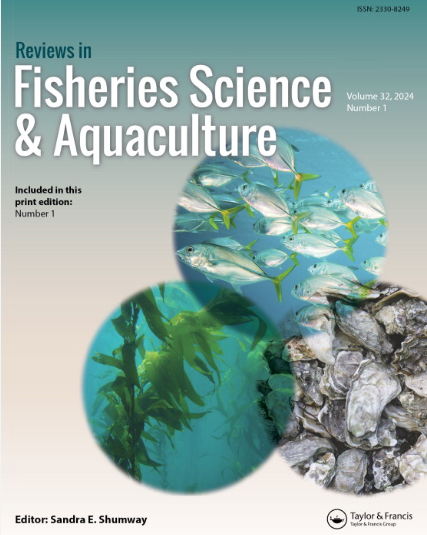The Extinction of the Chinese Paddlefish Psephurus gladius: Transnationalism, Technology Transfer, and Timescape
IF 5.3
1区 农林科学
Q1 FISHERIES
引用次数: 0
Abstract
Abstract The extinction of the Chinese paddlefish Psephurus gladius is examined in the context of transnationalism, technology transfer, and the compressing timescape of human activity, not just from the perspective of Psephurus, but also sturgeons and other long-lived, ancient and not-so-ancient declining fish species. Information is presented and questions raised as to why the extinction of Psephurus occurred, what broader transnational and technological trends may have led to it, and what can be learned and done to save the remaining Acipenseriform and other vulnerable species. Despite Psephurus (and its close relatives) surviving through millions of years of evolutionary time, its rapid descent to extinction, a result of a combination of overharvest, dam construction blocking spawning migrations, and pollution, is best understood in a broader geopolitical context of transfer of technologies for river development and use without adequate concurrent introduction of ecological knowledge needed for species persistence. The slowly developing life histories of Psephurus and many other fishes in a rapidly compressing timescape had led to their formerly adaptive life histories becoming maladaptive in the wild. Biologists and managers must start thinking more about what measures must be implemented immediately to maintain biodiversity of these long-lived but now ill-adapted species in the wild in an increasingly human-dominated, timescape-compressed world.中国白鲟的灭绝:跨国主义、技术转移和时间逃逸
摘要中国白鲟的灭绝是在跨国主义、技术转让和人类活动的时空压缩的背景下进行的,不仅从白鲟的角度出发,还从鲟鱼和其他长寿、古老和不那么古老的濒危鱼类的角度出发。关于Psepurus灭绝的原因,更广泛的跨国和技术趋势可能导致了灭绝,以及可以学习和采取什么措施来拯救剩余的鲟鱼和其他脆弱物种,提供了信息并提出了问题。尽管Psepurus(及其近亲)在数百万年的进化过程中幸存下来,但由于过度捕捞、水坝建设阻碍产卵迁徙和污染,它迅速灭绝,最好在更广泛的地缘政治背景下理解,即在没有充分同时引入物种持久性所需的生态知识的情况下,转让河流开发和使用技术。Psepurus和许多其他鱼类在快速压缩的时间范围内缓慢发展的生活史导致它们以前的适应生活史在野外变得不适应。生物学家和管理者必须开始更多地思考,在一个日益由人类主导、时间跨度被压缩的世界里,必须立即采取哪些措施来维持这些长寿但现在适应不良的野生物种的生物多样性。
本文章由计算机程序翻译,如有差异,请以英文原文为准。
求助全文
约1分钟内获得全文
求助全文
来源期刊

Reviews in Fisheries Science & Aquaculture
FISHERIES-
CiteScore
25.20
自引率
0.90%
发文量
19
期刊介绍:
Reviews in Fisheries Science & Aquaculture provides an important forum for the publication of up-to-date reviews covering a broad range of subject areas including management, aquaculture, taxonomy, behavior, stock identification, genetics, nutrition, and physiology. Issues concerning finfish and aquatic invertebrates prized for their economic or recreational importance, their value as indicators of environmental health, or their natural beauty are addressed. An important resource that keeps you apprised of the latest changes in the field, each issue of Reviews in Fisheries Science & Aquaculture presents useful information to fisheries and aquaculture scientists in academia, state and federal natural resources agencies, and the private sector.
 求助内容:
求助内容: 应助结果提醒方式:
应助结果提醒方式:


